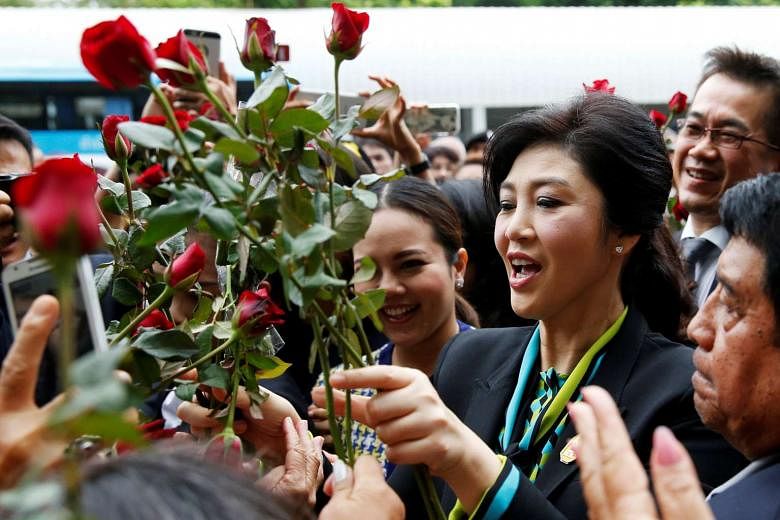BANGKOK - Former Thai Prime Minister Yingluck Shinawatra on Friday (Aug 5) arrived at the country's Supreme Court to give her testimony in the rice-pledging criminal case against her, The Nation newspaper reported.
As she arrived, hundreds of supporters waited for her at the court and shouted "fighting PM" with some screaming "love you, PM".
Yingluck, the sister of controversial billionaire and fugitive former prime minister Thaksin Shinawatra, was ousted in a coup in 2014.
She has been banned from politics until 2020, due to a retroactive impeachment by a military-appointed legislature over her alleged negligence in overseeing her administration's rice subsidy scheme, which could see her jailed for up to 10 years.
She is expected to lay out her defence on the case on Friday. She has previously denied wrongdoing, saying the scheme is an effort to help the country's poor rice farmers.
Speaking to reporters outside the court, Yingluck called for fair justice on her trial, stressing that the rice-pledging scheme benefits farmers over the country, the paper said.
She also urged people to exercise voting rights in Sunday's referendum on the country's charter draft, saying it is an important day to determine the country's future.
Thais are due to head to the polls on Sunday for a referendum on what would be its 20th Constitution. The vote is the first time Asean's second-largest economy will head to the ballot box since the military seized power.
Yingluck earlier said this week she will reject the draft constitution sponsored by the military. She wrote on her Facebook account: "The Constitution is supposed to recognise people's rights, create a balance of power, and find a solution for the country. I don't see any of that."
While the military says the charter is aimed at fighting corruption and abuse of political power, analysts say voters are more likely to use the plebiscite to voice their approval - or disapproval - of military rule.

